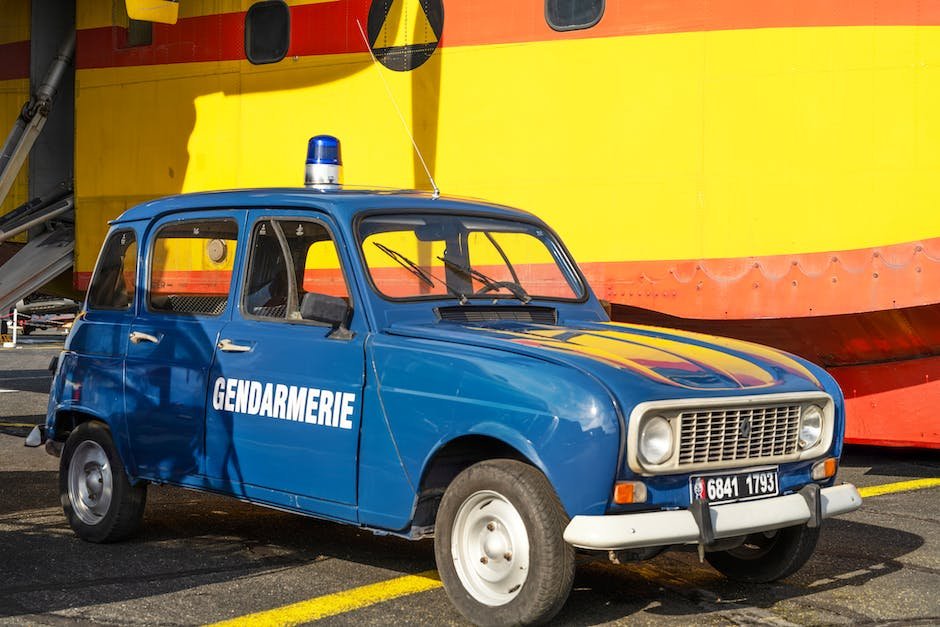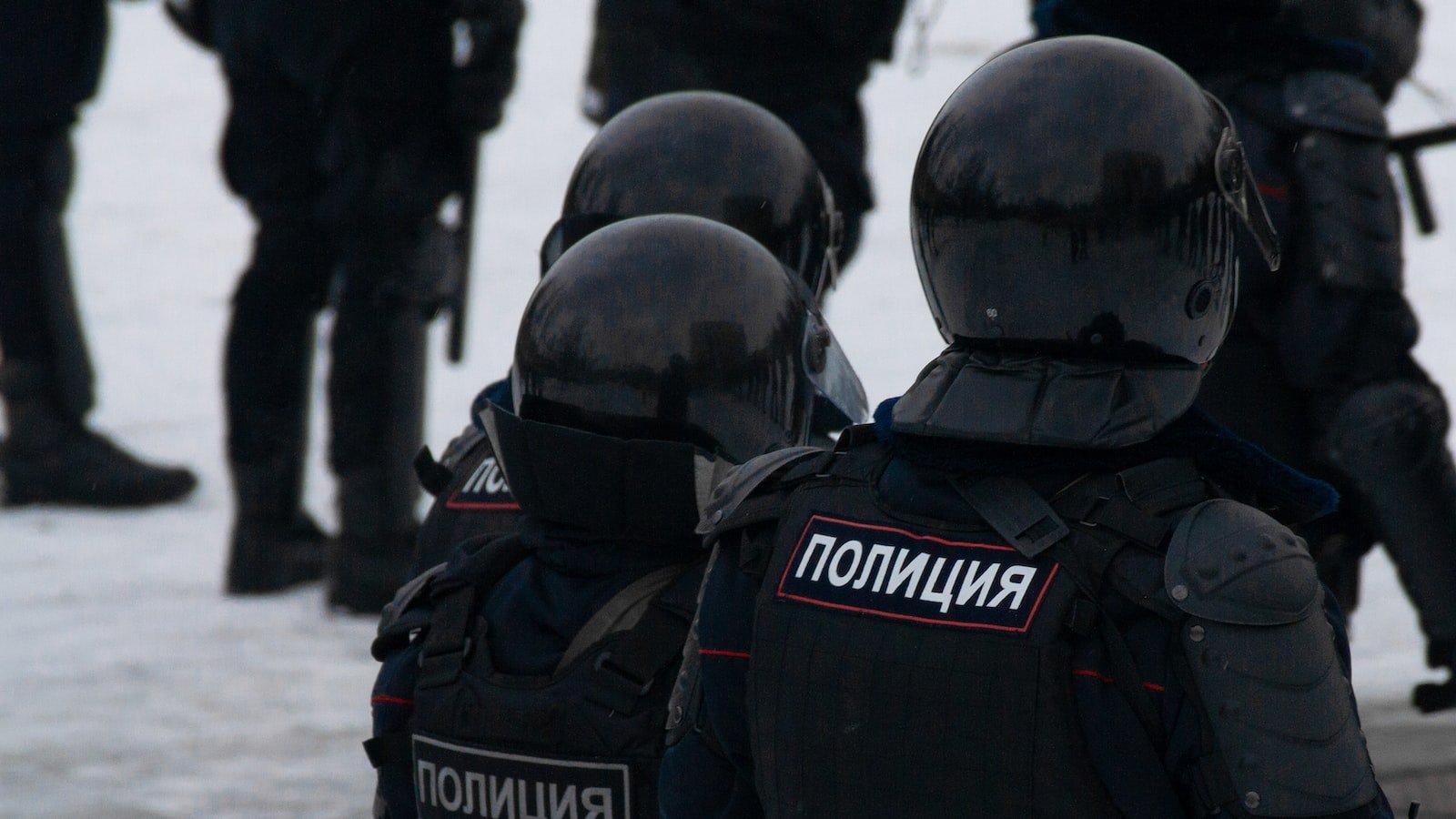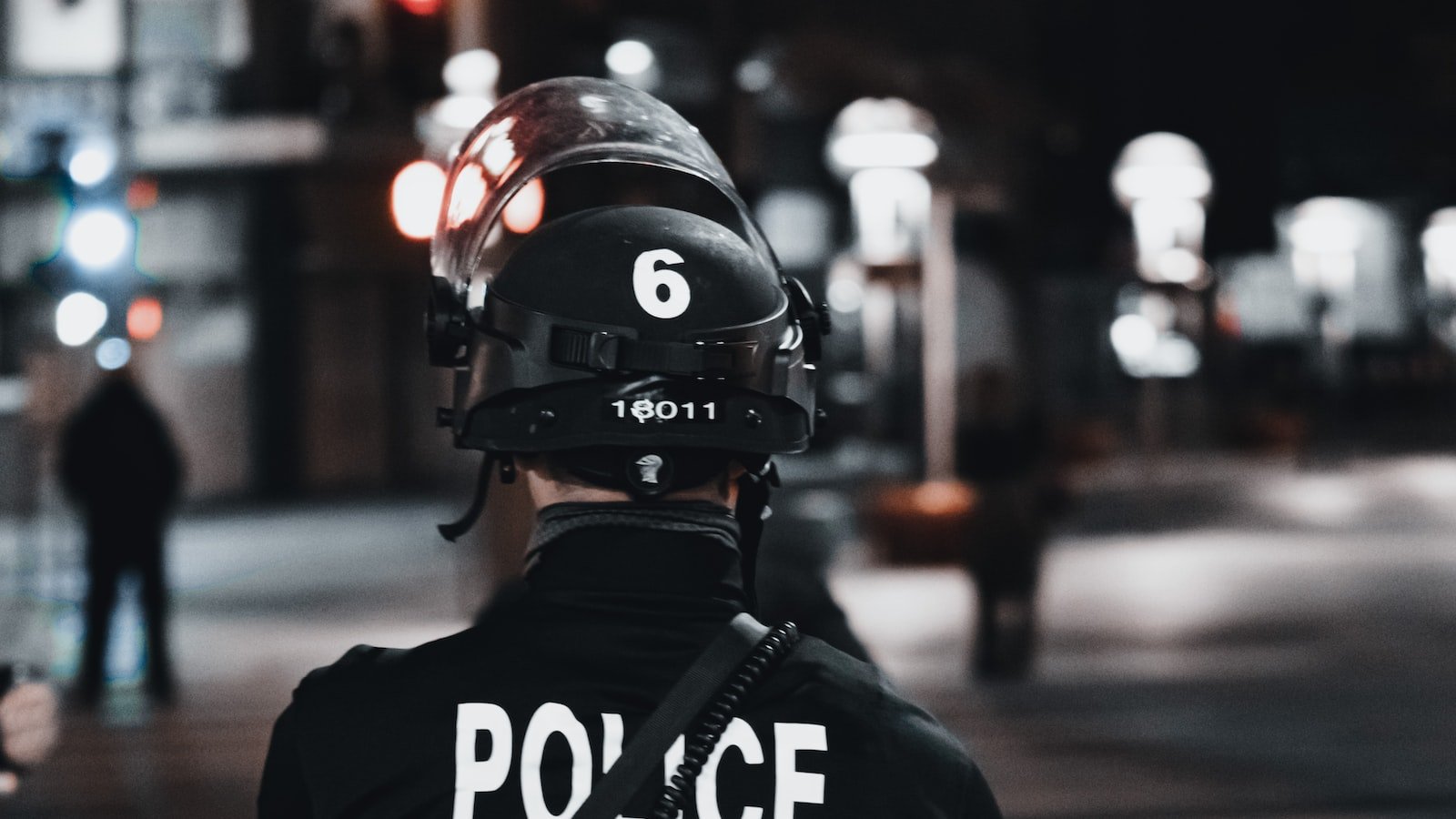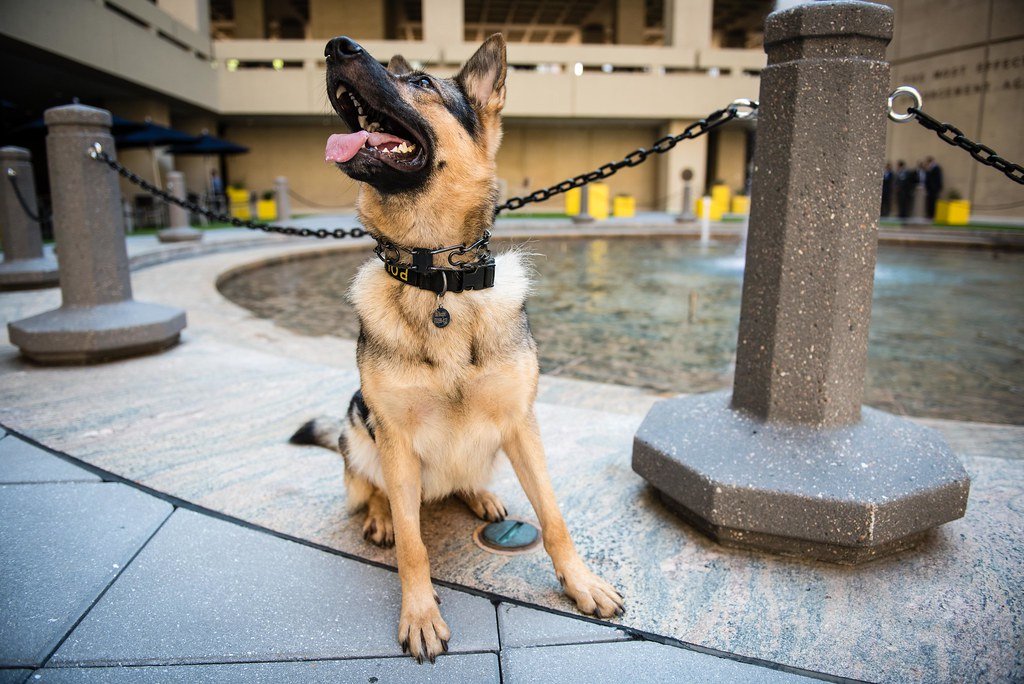The piercing sirens blare, the flashing lights swirl in a mesmerizing dance, and the determined police officers surge forward, guided by a loyal companion at their side – a fearless, impeccably trained police K9. These remarkable four-legged heroes play an invaluable role in law enforcement, using their keen senses and unwavering loyalty to protect, serve, and ensure justice in communities across the globe. If you’ve ever wondered how your own beloved canine companion could embark on this noble journey, fear not! This guide is here to walk you through the intriguing world of police K9 training and provide you with the essential steps to transform your furry friend into a crime-fighting furball of bravery and honor. Forget chasing tail; it’s time to chase tails of a different kind as we explore the thrilling path to getting your dog into police K9 training.
Table of Contents
- Preparing Your Dog for Police K9 Training: A Step-by-Step Guide
- Understanding the Requirements and Qualities of a Police K9
- Effective Training Techniques to Prepare Your Dog for Police Work
- Finding the Right K9 Training Program for Your Dog
- The Importance of Ongoing Training and Support for a Successful Police K9 Career
- Q&A
- In Conclusion

Preparing Your Dog for Police K9 Training: A Step-by-Step Guide
Training a dog to become a police K9 requires careful preparation and dedication. Before your furry friend embarks on this noble journey, it’s crucial to follow a step-by-step guide to ensure their success. By focusing on building a strong foundation, incorporating effective training techniques, and providing the right environment, you can set your dog up for K9 training success.
Step 1: Establish a Solid Foundation
Before diving into technical training, it’s essential to ensure your dog has a solid foundation of basic obedience skills. This includes commands such as sit, stay, heel, and come. A well-behaved dog with strong responsiveness will have a higher chance of excelling in various police tasks.
Tips:
- Consistency is key – practice obedience commands daily in a variety of settings.
- Use positive reinforcement techniques, rewarding your dog with treats, praise, or playtime when they successfully execute commands.
- Gradually increase the difficulty of commands by introducing distractions or longer duration.
Step 2: Emphasize Behavioral Socialization
Police K9s must adapt to a wide range of environments and interact with different individuals. Socializing your dog early on will prepare them for real-world situations they may encounter during their training. Encourage positive interactions with people, other dogs, and various environments to help your dog become adaptable and confident.
Tips:
- Expose your dog to different environments, sounds, sights, and experiences from an early age.
- Arrange playdates with other well-behaved dogs to enhance their social skills.
- Introduce your dog to individuals of various ages, ethnicity, and appearances to ensure they become comfortable around a diverse population.
Step 3: Build Your Dog’s Drive
A successful police K9 must possess high levels of motivation and drive. Building your dog’s drive towards work, reward, and play will greatly enhance their performance during training. Engage in activities such as retrieving objects, playing tug-of-war, or utilizing puzzle toys to stimulate your dog’s natural instincts and develop their drive for tasks.
Tips:
- Use high-value treats or toys as rewards during training sessions to increase motivation.
- Bond with your dog through interactive play, creating enthusiasm and excitement for work or exercises.
- Utilize positive reinforcement techniques to reward your dog’s drive and determination.
By following these steps and dedicating time and effort, you are setting your dog on the path to success in becoming a police K9. Remember, each dog is unique, so adjust the training methods according to your dog’s individual needs and abilities. A well-prepared dog will not only excel in K9 training but can also become a loyal and trusted partner in serving the community.

Understanding the Requirements and Qualities of a Police K9
When it comes to selecting a police dog, there are certain requirements and qualities that are sought after to ensure they are capable of handling the demanding tasks in law enforcement. These exceptional canines undergo extensive training to develop the skills necessary for their important roles.
Physical Requirements:
- Athletic build with strength, agility, and endurance
- Excellent scenting ability for tracking and detection
- Powerful jaw and bite force for apprehension and protection
- Resilient to withstand various terrains and weather conditions
Mental and Behavioral Qualities:
- Intelligent and quick to learn and follow commands
- Strong work ethic and ability to remain focused for extended periods
- A balanced temperament with a natural desire to please
- Confidence and fearlessness to face challenging and potentially dangerous situations
A police K9 must possess these requirements and qualities to become a valuable asset to law enforcement, ensuring the safety of officers and the community. They are truly remarkable animals, exemplifying a unique combination of skills and traits that make them an indispensable partner in the fight against crime.

Effective Training Techniques to Prepare Your Dog for Police Work
When it comes to preparing your dog for a career in law enforcement, effective training techniques play a pivotal role in shaping their skills and behavior. Here are some proven methods to ensure your canine partner is ready for the demanding world of police work:
- Positive Reinforcement: One of the most important aspects of training is to establish a bond of trust and respect between you and your dog. Focus on positive reinforcement techniques, such as rewards, treats, and praise, to encourage desired behaviors like obedience, attentiveness, and agility. Remember, rewards can go a long way in motivating your dog to excel in its training.
- Socialization: A well-rounded police dog needs to be comfortable and adaptable in various environments and situations. Expose your dog to a wide range of experiences, people, and other animals to ensure they develop the necessary social skills. This will help your dog remain calm and focused during high-pressure law enforcement tasks.
- Specific Skill Training: Police work requires specific skills from a canine partner, such as tracking scents, apprehending suspects, and detecting drugs or explosives. Develop a training plan that focuses on each of these skills individually, utilizing professional guidance if necessary. Incorporate rigorous physical and mental exercises into your training sessions to build the endurance and focus needed in police work.
By utilizing these effective training techniques, you can prepare your dog for a successful career in police work. Remember to always be patient, consistent, and compassionate while training your furry partner, ensuring a strong foundation for their future role in law enforcement.

Finding the Right K9 Training Program for Your Dog
Training your dog is essential for their overall well-being and to ensure a harmonious relationship between you and your furry friend. However, finding the right K9 training program can be a daunting task. Here are a few key factors to consider when choosing the perfect program:
- Training Methods: Look for programs that utilize positive reinforcement techniques. This approach focuses on rewarding desired behaviors, which helps create a happy and obedient dog.
- Experience and Credentials: Ensure that the training program has experienced and certified trainers. Good trainers understand canine behavior and can tailor their techniques to suit your dog’s individual needs.
- Training Environment: Consider the training environment offered by the program. Some dogs may thrive in group classes, while others may need more individual attention. Choose a program that suits your dog’s socialization needs.
No two dogs are the same, so it’s important to find a training program that caters to your dog’s specific personality and behavioral needs. Remember, patience and consistency are key throughout the training process, and with the right K9 program, you and your dog will be on the path to success!
The Importance of Ongoing Training and Support for a Successful Police K9 Career
When it comes to a successful police K9 career, ongoing training and support play a pivotal role. The dynamic nature of police work demands that K9 officers remain well-prepared and constantly updated with the latest techniques and skills. Here is why ongoing training and support are crucial for the success of these courageous canine partners.
- 1. Enhancing Skills: Ongoing training allows police K9s to enhance their existing skills and learn new ones. Whether it’s honing their obedience or sharpening their detection abilities, regular training sessions help them stay on top of their game.
- 2. Building Confidence: Continuous training and support instill confidence in police K9s. By exposing them to various scenarios, they are prepared to handle different challenges in real-life situations with composure and self-assurance.
- 3. Adaptability: Law enforcement is constantly evolving, with new techniques, risks, and approaches emerging. Ongoing training ensures that police K9s stay adaptable in a rapidly changing environment. By regularly exposing them to different exercises and scenarios, they are equipped to overcome unexpected challenges they may encounter.
Receiving ongoing support is just as vital as training. It provides a safety net for K9 officers, ensuring they have access to resources, guidance, and expertise when needed.
Q&A
Can any dog become a police K9?
Not every dog is suited for police K9 training. It requires certain characteristics like intelligence, athleticism, and a strong drive to work. Specific breeds like German Shepherds, Belgian Malinois, and Dutch Shepherds are commonly used due to their traits and abilities.
What is the first step to get my dog into police K9 training?
The first step is to ensure your dog has a solid foundation of basic obedience training. They should be able to obey commands such as sit, stay, heel, and come reliably. Police K9 training often builds upon these skills.
How important is socialization for a dog pursuing police work?
Socialization is crucial for any dog, including those in police K9 training. Dogs need to be comfortable and well-behaved around various people, animals, and environments. Proper socialization helps them adapt to different situations they may encounter while on duty.
What type of physical fitness is required for police K9 training?
Police K9s must be in excellent physical shape. They undergo rigorous training that involves running, jumping, climbing, and enduring long periods of activity. Their overall fitness, stamina, and agility play a vital role in their ability to perform their duties.
Are there any age restrictions for dogs entering police K9 training?
Most police K9 programs require dogs to be at least 1.5 to 2 years old before they can enter training. This ensures that they have reached a level of maturity and physical development needed for the demanding tasks ahead.
Is it necessary to have prior working experience to train my dog for police work?
While prior experience can be helpful, it is not essential. Many police K9 handlers receive training alongside their dogs. However, a strong understanding of dog behavior, training techniques, and a willingness to learn are important attributes for anyone interested in training their dog for police work.
Can a female dog be trained as a police K9?
Absolutely! Female dogs can excel in police K9 training just as much as their male counterparts. The decision often depends on the individual dog’s abilities, drives, and temperament rather than gender.
What are some common tasks that a police K9 is trained to perform?
Police K9s are trained for a variety of tasks including tracking suspects, locating missing persons, detecting narcotics or explosives, apprehending criminals, and providing officer protection. It depends on the specific training program and the needs of the police department.
Is it possible to adopt a retired police K9 after their service?
Some police departments allow retired K9s to be adopted by their handlers or suitable homes. However, each department has its own policies regarding retirement and placement of their K9s. It’s best to contact your local police department or K9 unit for information regarding retired dogs.
In Conclusion
As we conclude this journey into the fascinating world of police K9 training, we hope you’ve gained valuable insights on how to turn your beloved canine into an exceptional law enforcement companion. Remember, this is not merely about teaching your dog a few tricks; it’s about nurturing their innate ability to protect and serve, fostering a bond that transcends the ordinary human-pet relationship.
With patience, dedication, and unwavering commitment, you can unlock the potential that lies within your faithful four-legged friend. Embrace the challenges, relish the triumphs, and savor the undeniable joy of witnessing your dog transform into a real-life hero.
While embarking on this venture, always remember to prioritize the safety, health, and well-being of your furry companion. Seek professional guidance, consult with expert trainers, and ensure your dog is physically and mentally prepared for the demanding rigors of K9 training.
Together, let’s embrace the spirit of camaraderie and admiration for those courageous canines who selflessly serve our communities. These unsung heroes deserve our utmost respect and gratitude, and by embarking on this journey, you are contributing to a legacy that spans generations.
In the end, through the trials and tribulations, you will forge an unbreakable bond with your canine companion, one built on trust, loyalty, and a shared purpose. Whether your dog ultimately becomes a crime-solving, evidence-finding sleuth or a comforting presence on the front lines, rest assured that your efforts will not be in vain.
So, take a deep breath, dive into the world of police K9 training, and savor the incredible journey that lies ahead. May you and your exceptional dog find fulfillment, purpose, and endless adventures along the path of becoming a beacon of justice and protection in your community. Good luck, and may the paw-ful force be with you!
As an affiliate, my content may feature links to products I personally use and recommend. By taking action, like subscribing or making a purchase, you’ll be supporting my work and fueling my taco cravings at the same time. Win-win, right?
Want to read more? Check out our Affiliate Disclosure page.